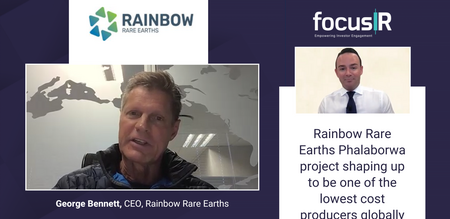By Bill Berkrot
But in an unusual move for biotech - where hype is often thenorm - its founders are tempering expectations.
They are quick to point out that their task ahead is nosmall one: Getting doctors and insurers to agree to testingseveral hundred thousand cancer patients to find the onepercent, or less, whose tumor has the mutation its drug targets.
"We're very cautious about this because we understand thatfor all of these patients to be identified, broad testing acrossthe spectrum of human cancer has to happen," Jacob Van Naarden,Loxo's chief business officer, told Reuters. "It's anexquisitely rare patient population."
Because of its small size and narrow focus, Loxo is amongthe most dependent on adoption of widespread genomic testing.But they aren't alone. Bigger drugmakers, such as Roche Holding, are also working on treatments that depend on finding amutation driving many different cancers.
Loxo, founded in 2013, leapt from obscurity last year. Theturning point came at a major cancer conference in June, when itreleased data showing its pill, larotrectinib, shrank tumorssignificantly in 75 percent of patients with cancer in the lung,pancreas, colon or more than a dozen other locations.
Its stock skyrocketed and the company now has a marketvaluation more than
Loxo's trial tested 55 advanced cancer patients, all ofwhose tumors had the mutation, TRK fusion. Many had run out oftreatment options, while some were children facing limbamputations.
Wall Street analysts expect
With Bayer in charge of pricing, the drug could cost
In interviews at company headquarters in
To find them, new genomic tests will need to include the TRKfusion defect.
"These drugs will do well as people adopt this testing,"said Dr. David Hyman of Memorial Sloan Kettering Cancer Centerin
But getting doctors and pathologists across the country toorder that testing is a significant hurdle.
The
For the moment, private insurers such as Anthem Incand Humana Inc typically only pay for narrow diagnostictests for a particular type of cancer.
Given uncertainties around finding the right patients, "wedon't think it's a billion-dollar drug," said Loxo ChiefExecutive Joshua Bilenker. Bayer said it was too soon to predicteventual sales.
GETTING TESTED
Until now, cancer drugs that target mutations have beenprimarily limited to the tumor type against which it was tested.Pfizer Inc's Xalkori works against ALK and ROS1mutations in lung cancer. Roche's Zelboraf treatsmelanoma with an abnormal BRAF gene.
Merck & Co's Keytruda was the first cancer drugapproved for many tumor types based on a single mutation andwill benefit from large scale testing, though that remains arelatively small market for its treatment.
Newer players, such as Loxo, Blueprint Medicines Coand Ignyta, recently bought by Roche, target tumor mutationsregardless of their organ of origin. This requires far morepeople to be tested, since such a small number of patients willhave the mutations in any one tumor type.
These advanced tests, provided by Foundation Medicine, Thermo Fisher Scientific, Caris Life Sciences,and others, can detect hundreds of mutations from a tiny tissuesample. Testing positive for one of about of dozen of thesemutations could directly influence treatment.
While the cost has dropped dramatically, to about
Foundation and Thermo said they are talking to privateinsurers about coverage. Humana and Anthem said they areevaluating their policies following the Medicare decision.
"Reimbursement is a continuous and ongoing battle," saidFoundation Chief Medical Officer Vince Miller.
Major cancer centers, which conduct extensive research, usetests that detect hundreds of mutations. But to justify suchtesting, community hospitals will need know it will identify thepatients likely to benefit.
Bayer will reach out to cancer doctors about larotrectinibonce it is approved, while Loxo will educate pathologylaboratories on the need to test for TRK, Loxo said.
The companies say the cost is worth it since doctors couldprescribe a highly effective drug if their patient has the TRKdefect instead of more toxic chemotherapy or expensiveimmunotherapy with a lower probability of working.
"That's an amazing return on investment for the healthcaresystem," Bilenker said.
(Reporting by Bill Berkrot; Editing by Michele Gershberg andPaul Thomasch)





